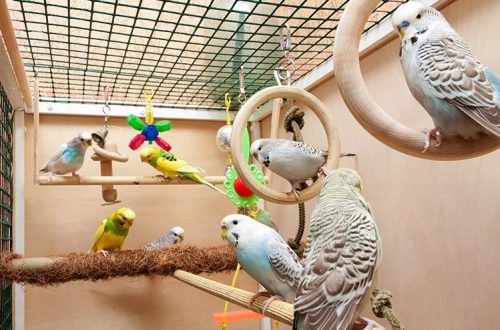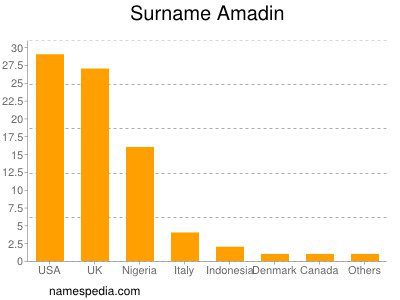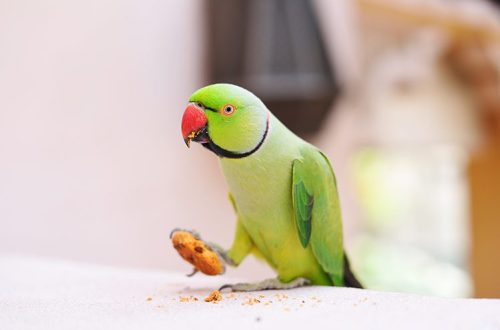
Vitamins for parrots
The way of life of parrots in captivity is strikingly different from the rhythm, opportunities and dangers that warn birds in the wild. With proper care, at home, the lifespan of some types of parrots can be significantly longer than in tropical forests or desert savannahs.
But not always the owner can give the feathered friend everything that his body needs. During a bird’s illness, during the breeding or molting period, parrots need additional feeding, a richer diet in nutrition.

Vitamins for parrots are the “lifeline” that is able to make up for the lack of nutrients in the bird’s body as soon as possible.
You can buy vitamins for parrots in veterinary clinics, pharmacies and online stores. It is important to know why one or another type of vitamin supplements is needed and what the dosage should be, based on the type of parrot.
When not to give vitamins
Under certain circumstances, synthetic vitamins for parrots should absolutely not be given. Only after careful analysis and under the supervision of an ornithologist in these cases, it is possible that individual components will be allowed to support the bird’s body:
- first molt;
- during treatment with immune stimulants and immune modulators;
- if there are diseases of the liver, pancreas or diabetes;
- tumors.

There are many useless and even harmful vitamins for birds on the market. Under the guise of daily restorative feeding, you can feed the feathered with a lethal dose of iodine or another substance that is needed only in case of an acute shortage in the bird’s body. Otherwise, an excess of it can lead to serious illness and even death.
When taking vitamins, it is extremely important to maintain the correct balance of nutrients in the body of your bird, since with a lack of useful micro and macro elements in the body, the parrot’s immune system suffers, metabolic disorders occur, and problems with poultry breeding are possible.
Vitamins for budgerigars include almost all vitamin supplements that are present on the Russian market.
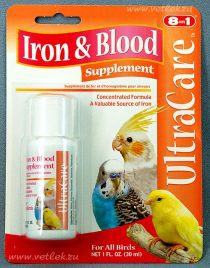
Wavy is very popular among bird owners, so the instructions often give the dosage, first of all, with the expectation of wavy fluff. If, however, it is difficult for you to calculate the dose of the drug for a small bird, seek help from a veterinarian or a professional breeder.
Vitamin complexes should be given to a parrot only after consultation with an ornithologist or after a more in-depth study of the range of drugs on the market and an analysis of the condition of your parrot.
If the parrot’s nutrition is balanced, then vitamins do not need to be given to the bird!
Detailed information on which vitamins are best given to a parrot and in what quantity is presented in the table below.
The company | Description |
8in1 Cotrition Vita-Sol Multi Vitamin multivitamin concentrate for birds  | Concentrate of vital high-performance multi-vitamins dissolved in water, ensuring the nutritional value and proper development of parrots living in captivity. It is also intended for sick and weakened birds. This complex is water-soluble vitamins A, D, E, group B and biotin, C, F, which together and individually increase immunity, affect the quality of the feather and skin, digestibility of food, the state of the bird’s skeleton and many other factors. The most popular multivitamin complex for cockatiels. |
Gamavit | A complex preparation that contains a balanced solution of salts, amino acids and vitamins. It goes well with other drugs, no side effects were found. It is prescribed for anemia, beriberi, after poisoning and to maintain a good physical condition of the budgerigar. |
Orlux Omni-vit 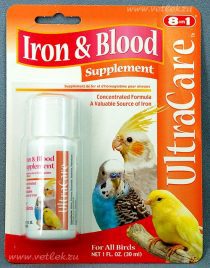 | Multi-vitamin preparation for all types of exotic birds based on vitamins and amino acids. The powder can be added to drinking water or feed. Omni-vit is effective in cases of reduced immunity due to infection, exhaustion, stress, during the breeding season and after illness. |
Orlux Muta-vit  | The multivitamin preparation for birds consists of vitamins and amino acids, with a high content of sulfuric amino acids and biotin. Vitamins normalize metabolism, improve feather growth and general condition. The drug has a protective hepatoprotective effect. Muta-Vit is intended for all kinds of birds. Ingredients: Vitamins K, A, D3, E, B1, B2, V6 (pantothenic acid), B12, BXNUMX, C, PP, Folic acid, Vitamin H (biotin), Choline, Lysine, Methionine, Copper (Cu), Manganese (Mn), Zinc (Zn), Iodine (I), Cobalt (Co). |
Beaphar Mauser drops 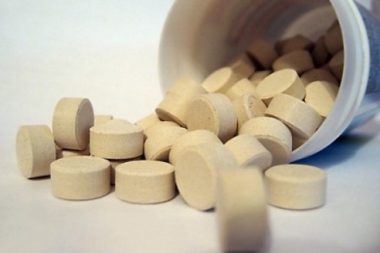 | Vitamin supplement for parrots compensates for the lack of vitamins and minerals in the bird’s diet, saturates the color of the plumage, improves the psychological state and uplifts the mood. Drops of Beaphar Mauser Tropfen are especially needed during the molting period. |
Beaphar vinka | Vitamin supplement (vitamins A, C, E, K3, B1, B2, B6, B12, D3, nicotinamide, calcium pantothenate, biotin, choline) helps to strengthen the immunity of birds. For emaciated birds, during the molting period. Also, a vitamin supplement is prescribed for chicks to improve their growth and increase resistance to parasitic and viral diseases.
|
Beaphar Trink & Fit Birds
| Ingredients: blackcurrant concentrate not less than 0,15%, water, glucose not less than 3%, milk or dairy products. Vitamins for birds contribute to the formation of healthy bone tissue and beautiful feathers. Also recommended for lack of vitamin C and calcium in the parrot menu. It makes no sense for healthy birds to use it, since they perfectly enrich their body with calcium with the help of mineral stones and sepia, and vitamin C may not be enough only due to certain diseases, since this microelement in birds is synthesized in the liver and kidneys |
Beaphar Bea Vit Total | Complex preparation for pets. Helps to improve the condition after deworming. Vitamin composition: B1, B2, pantothenic acid, nicotinamide, B6, B12, biotin. |
8 in 1 Tonic & Bitters 
| It is a prophylactic tonic and medication. Strengthens the immune system and is an anthelmintic drug. Ingredients: liquid extract of cascara (zhostera) is one of the most effective herbal laxatives. It reduces fermentation and putrefactive processes in the intestines, has a disinfectant, anti-inflammatory and analgesic effect, removes worms and parasites. Restores the tone of a relaxed intestine. Cascara sagrada stimulates the secretion of the entire digestive system and intestinal peristalsis. All this helps to cleanse the bird’s body of toxins and, as a result, strengthens its resistance to diseases. For birds with serious liver pathologies, joster is contraindicated. |
Nekton tonic-F for fruit-eating birds 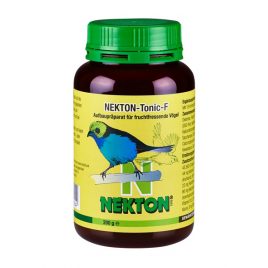 | Nekton toniс products are high quality nutritional supplements that have been specially developed for different types of birds. It contains amino acids, vitamins, as well as macro and microelements. Special mixes are available for herbivorous, insectivorous and fruit-eating birds. Composition: more than 60 individual substances. |
Nekton – BIO for plumage 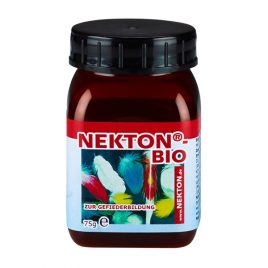 | Feathers are mainly protein in nature, which is why 18 free amino acids were included in the supplement. Together, 13 vitamins, 6 trace minerals and calcium have been combined with amino acids to create a special formula to support the body during shedding and to encourage the growth of smooth and glossy feathers. |
Nekton – S multivitamins and amino acids 
| This well-balanced blend of 13 vitamins, 18 natural L-form free amino acids and minerals will help prevent hypovitaminosis and increase the nutritional value of your diet. The complex increases the resistance of birds to diseases, as well as the stress associated with molting, exhibitions and acclimatization, and also increases the fertility of parrots. Make sure that there is a break of 1 month with Nekton – BIO. |
Brewer’s yeast without additives 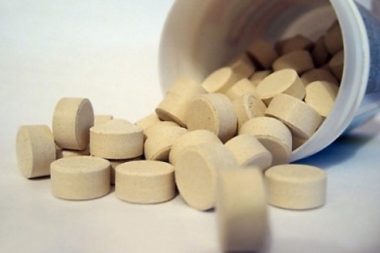 | Vitamins of group B, which are recommended for beriberi, a violation of calcium-phosphorus metabolism. 1 tablet crumbles for the daily feed intake. You need to give 14 days. If your parrot has an individual intolerance to these vitamins, which manifests itself in diarrhea, you should stop taking the drug immediately. |
Radostin, Tetravit, Vittri, Trivit and similar  | Vitamins that are infamous among parrot owners. When they are taken, there is a high probability of poisoning and an allergic reaction.. |
Vitaminized foods and various vitamin treats | It is impossible to give them to birds, since it is impossible to control the amount of vitamins eaten, and in such cases there may be saturation for a certain component, or vice versa: you will think that you are providing the bird with the necessary nutritional material, and nothing will enter the body of the parrot. There is an option that the parrot may not even eat these additives, and you will simply overpay for ordinary grain. |
The above vitamins for parrots can be bought at veterinary pharmacies or on pet store websites. These drugs are proven products and are famous for their excellent quality and successful results after ingestion by birds.
Vitamins Beaphar Trink & Fit Birds can be purchased at this online store.
Beaphar Mauser Tropfen Vitamin Supplement can be purchased here.
It is not recommended to give vitamins before the first molt! Only when indicated, then vitamins A, B, D and others are prescribed, depending on the cause (diseases due to a lack of these substances, severe molting, general exhaustion of the body and low immunity).
What are certain vitamins in the body of a parrot responsible for?
Hypervitaminosis in birds is now more common than nutritional deficiencies. An excess of vitamins is no less dangerous than their lack. Moreover, it is very important to understand what vitamins you need to give your parrot.
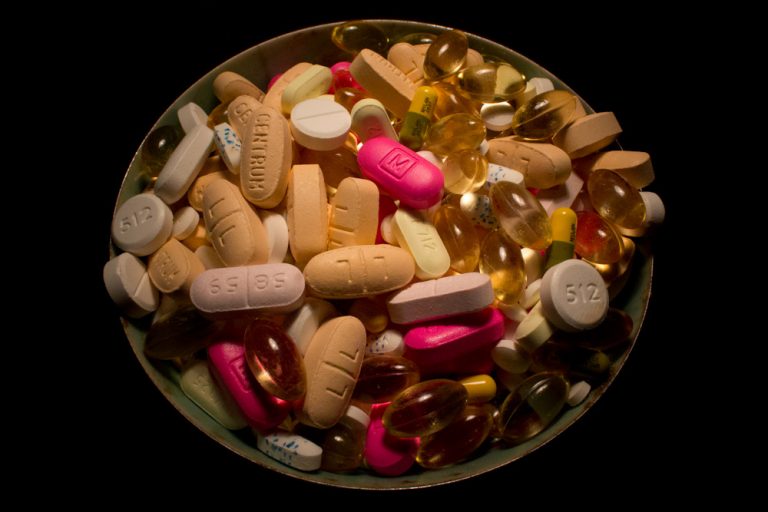
For example, calcium, phosphorus and D3 “work” together and the lack of one of these substances can affect the absorption of the other by the body.
Calcium (Ca)
This is an important element in the bird’s body, it makes up 1,5% of the bird’s weight. Calcium is responsible for bone formation, blood clotting, eggshell formation, normal metabolism, central nervous system function, muscle fiber contraction, and fertility.
Phosphorus (P)
Phosphorus is needed to form bone tissue, regulate the acid-base balance, supply calcium to the formation of eggs. Due to the large amount of phosphorus in the body, the bird rapidly loses calcium.
D3
Vitamin D3 regulates the absorption of calcium in the gastrointestinal tract, is responsible for the production of hormones that affect the excretion of calcium and phosphorus by the kidneys. Vitamin D3 is produced in sunlight, and in those feeds where this element is present, as a rule, its indicators are overestimated, which can quickly lead to an excess of D3 in the body of a parrot. You should be extremely careful if you still decide to feed a bird with such material.
Vitamins A, B, C, E provide immunity to the parrot and resistance to infectious diseases.
Vitamin A
It affects the entire body of a parrot: growth, skeletal formation, respiratory, cardiovascular and digestive systems, vision, the formation of mucous membranes, skin, plumage, its color, as well as reproduction and the functioning of the hormonal system.
Group B
The peculiarity of these vitamins is that they do not accumulate in the body of a parrot, so they need to be replenished daily. They are responsible for the functioning of the central nervous system, the normal functioning of the immune system, and increase resistance to pathogens.
Vitamin C (ascorbic acid)
This element itself is synthesized in the bird’s body (in the liver and kidneys) in the right amount, only with certain diseases or during the period of breeding or molting, its level decreases and there is a need to replenish it.
Vitamin E
Reproductive function is completely dependent on the level of this vitamin – this is the ability to breed and guarantee healthy offspring. The parrot’s appetite, coordination and energy levels are also affected by vitamin E levels.
Sulfur (S)
Many proteins and amino acids are saturated with it. Since sulfur occupies a certain percentage in the beak, claws and feathers, during the period of molting and reproduction, it is extremely important to maintain its balance in the body of a parrot.
Potassium (K)
Responsible for protein metabolism and regulates the level of water in tissues.
Sodium (Na) and chlorine (Cl)
They regulate the osmotic pressure in the body, if the salt level is too high, the parrot is dehydrated, which poses a mortal threat to the bird.
Selenium, zinc, iron, manganese, copper, magnesium, iodine – all these components one way or another are indispensable “building blocks” in the formation of a bird and its further health.
Balancing the nutrition of a parrot: grain mixtures, fruits, vegetables, greens, sprouted grains and cereals – will provide your bird with all the necessary nutrients and a parrot will rarely need synthetic vitamins.



